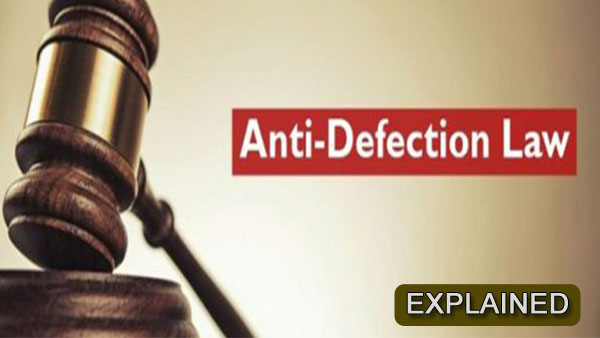
Explained: What is the Anti Defection Law and how is it implemented
New Delhi, Mar 12: The crisis in Madhya Pradesh is not going to end anytime soon. The Speaker's role would come into play whether it comes to deciding on the resignations or disqualifying the MLAs.
The Tenth Schedule, technicalities and also the Anti Defection Law would be cited during the crisis. Ultimately the matter could also end up in the Supreme Court. Now, let us take a look at what the Anti Defection Law is and when does it come into play and how it is also implemented.

What is the anti-defection law:
In the year 1985, the Tenth Schedule was introduced in the Constitution, by which legislators could be disqualified on grounds of defection. A member is deemed to be defected if he either voluntarily gives up the membership of his party or disobeys the directives of the party on a vote.A member defying the whip of his party may be disqualified from the membership of the House.
When does the Anti Defection law not apply:
The law allows a party to merge with or into another provided in case at least two-thirds of its legislators are in favour of the merger. A similar scenario was witnessed in Goa, when 10 Congress MLAs merged with the BJP, while the remaining 5 stayed away. They did not attract the provisions of the law.

While interpreting the law, the Supreme Court said that in the absence of a formal resignation by the member giving up the membership, the same could be inferred by his conduct.
While the law initially said that the decision of the Speaker or presiding officer is not subject to judicial review, the Supreme Court had in 1992 had allowed appeals against the presiding officer. The court said that such decisions could be reviewed by both the High Court and the Supreme Court.
Time limit:
In the Karnataka scenario, the Speaker had been accused of sitting over the matter and not deciding on the resignation of the rebel MLAs. The Supreme Court too had said that there is no time limit for the Speaker to decide. It however said that the rebels cannot be compelled to go to the assembly.
The law too does not specify a time limit. This means that the courts can intervene with the decision of the Speaker only once he has taken a decision.
The amendment:
In 2003, there was an amendment to the law. When first enacted there was a provision which said if there occurs a split in the original political party and as a result of which one-third of the legislators of the party forms a separate group, they shall not be disqualified. This led to large scale defections and hence this provision was deleted.
Provided in the 4th Paragraph of the 10th Schedule, the provision can now be invoked for protection from disqualification if there is a merger.


 Click it and Unblock the Notifications
Click it and Unblock the Notifications

































